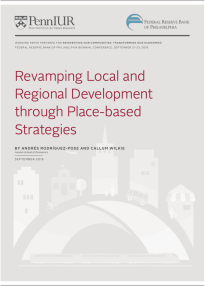Key Message
Place-based development strategies offer a promising approach to achieving sustainable and inclusive economic growth by empowering local governments to address unique local challenges and opportunities. To maximize the returns of these strategies, it is essential to build local capacities and promote effective multilevel governance, ensuring coordination between different levels of government and minimizing policy overlaps. By fostering local ownership and tailored interventions, place-based strategies can drive meaningful economic and social development, provided that they are implemented with careful consideration of local contexts and capacities


